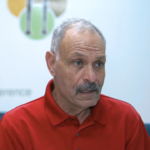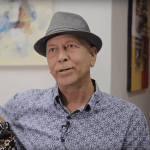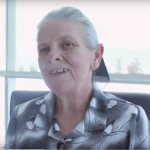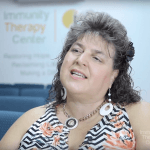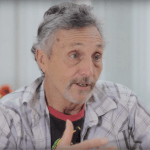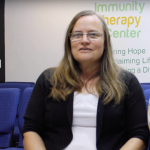About ovarian cancer
Ovarian cancer is a strain of cancer that is limited to women and occurs in the ovaries of the female reproductive system. Each woman has two ovaries that are like sacs the size of an almond joined by ligaments in the uterus. They are incredibly important for two reproductive functions:
- Fertilization – They produce and release eggs during the menstrual cycle.
- Hormone production – They produce progesterone and estrogen.
According to Healthline, each year: «Approximately 21,000 women in the US will be diagnosed with ovarian cancer. Additionally, approximately 14,000 women in the US will die of this disease in the next year.» Ovarian cancer is most often found in white women over the age of 40, and half of the cases are in women over the age of 63. A woman’s risk of dying from ovarian cancer is about 1 in 108. Typical strains of ovarian cancer include:
- Epithelial tumors: represent 90% of all ovarian cancers. They occur in the thin layer of tissue on the outside of the ovaries.
- Stromal tumors: represent 7% of all ovarian cancers. They start in ovarian tissue that has hormone-producing cells. For that reason, this strain is much more diagnosable in the early stages.
- Germ cell tumors: A rare type of ovarian cancer that occurs in the egg-producing cells of young women.
- Peritoneal cancer: A rare type of cancer that acts and looks like ovarian cancer, since the ovaries and peritoneum are made up of epithelial cells. As a result, they have very similar symptoms and treatments, although it can develop even after the ovaries have been removed.
Causes and risk factors
Although we do not yet know the causes of most ovarian cancers, we do know that there are factors that make a woman more susceptible to developing epithelial tumors. Common risk factors include:
- Older age – Although it can occur at any age, it most commonly occurs in women between the ages of 50 and 60.
- Estrogen Hormone Replacement Therapy – Long-term use and / or large doses of artificial hormones increase the risk of developing ovarian cancer.
- Age when menstruation started or ended – If you start menstruation early or start menopause late, it may increase your risk of developing ovarian cancer.
- Family history: It has been shown that there are genetic inheritance links of the disease.
Early detection, diagnosis, and staging
Unfortunately, early-stage ovarian cancer doesn’t have symptoms often. Even advanced-stage ovarian cancer rarely has symptoms that are not relatively benign. As a result, it can be extremely difficult to detect. Such symptoms can look like:
- Constipation
- Diarrhea
- Feeling full after eating small amounts
- Urinate frequently
- Discomfort in the pelvis
- Swelling in the abdomen
- Weightloss
If you see the signs, common tests your doctor may perform include:
- Pelvic exam – The doctor makes a digital insertion into the vagina and then presses his other hand against the abdomen to feel the pelvic organs.
- Imaging tests – CT scans and ultrasounds of the abdomen and pelvis may be taken to better measure the size, shape, and structure of the ovaries.
- Blood test – A blood test can determine if you have cancer cells in your body. Blood is drawn to test for tumor markers and proteins commonly found in cancer cells of the ovaries.
- Surgery : Sometimes it is necessary to remove one of the ovaries to detect cancer.
Stages of ovarian cancer
There are four stages of ovarian cancer:
- Stage I : The cancer remains in the ovaries and has not yet spread to local or distant organs.
- Stage II – The cancer is in one or both ovaries. It has also spread to the fallopian tubes or uterus.
- Stage III – The cancer is in one or both ovaries. It has spread beyond the pelvic region to the abdominal lining or lymph nodes.
- Stage IV – The cancer has advanced and has metastasized to distant organs.
Next steps:
Immunity Therapy Center uses a variety of alternative cancer treatments to strengthen your immune system while targeting cancer cells directly. The type and combination of therapies we use vary depending on the type and location of the cancer, the stage of the cancer, and the individual’s overall health. If you are interested in a personalized alternative therapy treatment plan or learning more about alternative therapy for cancer treatment, contact the Immunity Therapy Center today!
Sources:
Baber, R. NCBI. Menopausal hormone therapy and ovarian cancer. (2015). https://www.ncbi.nlm.nih.gov/pmc/articles/PMC4604667/
Cancer.org. Ovarian Cancer. https://www.cancer.org/cancer/ovarian-cancer/causes-risks-prevention/what-causes.html
Terapias que usamosAt Immunity Therapy Center, our goal is to provide objective, updated, and research-based information on all health-related topics. This article is based on scientific research and/or other scientific articles. All information has been fact-checked and reviewed by Dr. Carlos Bautista, a Board Certified Medical Doctor at Immunity Therapy Center. All information published on the site must undergo an extensive review process to ensure accuracy. This article contains trusted sources with all references hyperlinked for the reader's visibility.
Cuidado personalizado para el cuerpo y la mente
Discuta su plan de tratamiento alternativo personalizado con nuestro equipo hoy mismo.
Escuche a nuestros pacientes
See why the Immunity Therapy Center is a trusted name for medical tourism and cancer treatment centers in Mexico.
FAQ's
Select Topic:- Diseases and Treatments
- Our Mexico-based Center and Team
- Patient Expectations and Experiences
- Costs and Travel Arrangements


